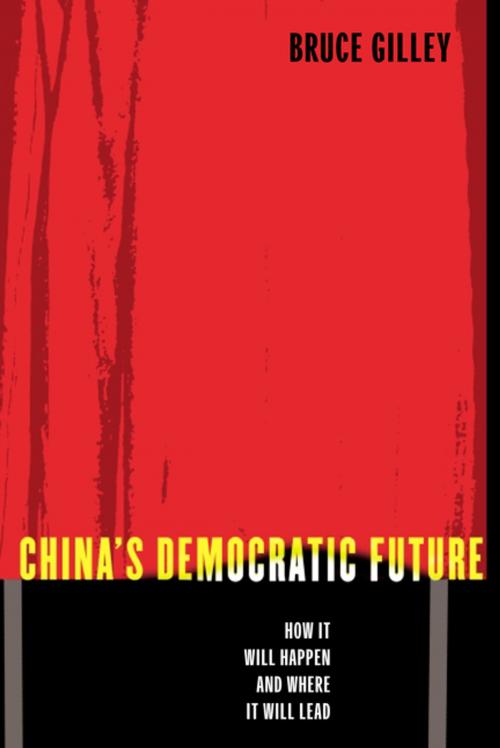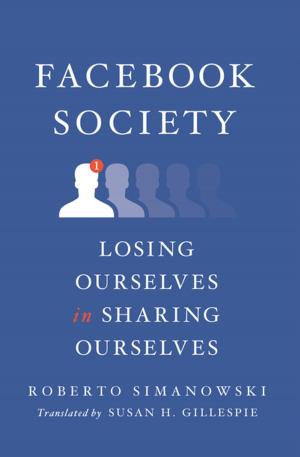China's Democratic Future
How It Will Happen and Where It Will Lead
Nonfiction, Social & Cultural Studies, Political Science, Government, Communism & Socialism, History, Asian, China| Author: | Bruce Gilley | ISBN: | 9780231502153 |
| Publisher: | Columbia University Press | Publication: | March 12, 2004 |
| Imprint: | Columbia University Press | Language: | English |
| Author: | Bruce Gilley |
| ISBN: | 9780231502153 |
| Publisher: | Columbia University Press |
| Publication: | March 12, 2004 |
| Imprint: | Columbia University Press |
| Language: | English |
The end of communist rule in China will be one of the most momentous events of the twenty-first century, sounding the death knell for the Marxist-Leninist experiment and changing the lives of a fifth of humanity. This book provides a likely blow-by-blow account of how the Chinese Communist Party will be removed from power and how a new democracy will be born.
In more than half a century of rule, the Chinese Communist Party has turned a poor and benighted China into a moderately well-off and increasingly influential nation. Yet the Party has failed to keep pace with change since stepping aside from daily life in the late-1970s. After nearly a hundred years of frustrating attempts to create a workable political system following the overthrow of the last dynasty, the prospects for democracy in China are better than ever, according to Bruce Gilley.
Gilley predicts an elite-led transformation rather than a popular-led overthrow. He profiles the key actors and looks at the response of excluded elites, such as the military, as well as interested parties such as Taiwan and Tibet. He explains how democracy in China will be very "Chinese," even as it will also embody fundamental universal liberal features. He deals with competing interests—regional, sectoral, and class—of China's economy and society under democracy, addressing the pressing concerns of world business. Finally he considers the implications for Asia as well as for the United States.
The end of communist rule in China will be one of the most momentous events of the twenty-first century, sounding the death knell for the Marxist-Leninist experiment and changing the lives of a fifth of humanity. This book provides a likely blow-by-blow account of how the Chinese Communist Party will be removed from power and how a new democracy will be born.
In more than half a century of rule, the Chinese Communist Party has turned a poor and benighted China into a moderately well-off and increasingly influential nation. Yet the Party has failed to keep pace with change since stepping aside from daily life in the late-1970s. After nearly a hundred years of frustrating attempts to create a workable political system following the overthrow of the last dynasty, the prospects for democracy in China are better than ever, according to Bruce Gilley.
Gilley predicts an elite-led transformation rather than a popular-led overthrow. He profiles the key actors and looks at the response of excluded elites, such as the military, as well as interested parties such as Taiwan and Tibet. He explains how democracy in China will be very "Chinese," even as it will also embody fundamental universal liberal features. He deals with competing interests—regional, sectoral, and class—of China's economy and society under democracy, addressing the pressing concerns of world business. Finally he considers the implications for Asia as well as for the United States.
The end of communist rule in China will be one of the most momentous events of the twenty-first century, sounding the death knell for the Marxist-Leninist experiment and changing the lives of a fifth of humanity. This book provides a likely blow-by-blow account of how the Chinese Communist Party will be removed from power and how a new democracy will be born.
In more than half a century of rule, the Chinese Communist Party has turned a poor and benighted China into a moderately well-off and increasingly influential nation. Yet the Party has failed to keep pace with change since stepping aside from daily life in the late-1970s. After nearly a hundred years of frustrating attempts to create a workable political system following the overthrow of the last dynasty, the prospects for democracy in China are better than ever, according to Bruce Gilley.
Gilley predicts an elite-led transformation rather than a popular-led overthrow. He profiles the key actors and looks at the response of excluded elites, such as the military, as well as interested parties such as Taiwan and Tibet. He explains how democracy in China will be very "Chinese," even as it will also embody fundamental universal liberal features. He deals with competing interests—regional, sectoral, and class—of China's economy and society under democracy, addressing the pressing concerns of world business. Finally he considers the implications for Asia as well as for the United States.
The end of communist rule in China will be one of the most momentous events of the twenty-first century, sounding the death knell for the Marxist-Leninist experiment and changing the lives of a fifth of humanity. This book provides a likely blow-by-blow account of how the Chinese Communist Party will be removed from power and how a new democracy will be born.
In more than half a century of rule, the Chinese Communist Party has turned a poor and benighted China into a moderately well-off and increasingly influential nation. Yet the Party has failed to keep pace with change since stepping aside from daily life in the late-1970s. After nearly a hundred years of frustrating attempts to create a workable political system following the overthrow of the last dynasty, the prospects for democracy in China are better than ever, according to Bruce Gilley.
Gilley predicts an elite-led transformation rather than a popular-led overthrow. He profiles the key actors and looks at the response of excluded elites, such as the military, as well as interested parties such as Taiwan and Tibet. He explains how democracy in China will be very "Chinese," even as it will also embody fundamental universal liberal features. He deals with competing interests—regional, sectoral, and class—of China's economy and society under democracy, addressing the pressing concerns of world business. Finally he considers the implications for Asia as well as for the United States.















